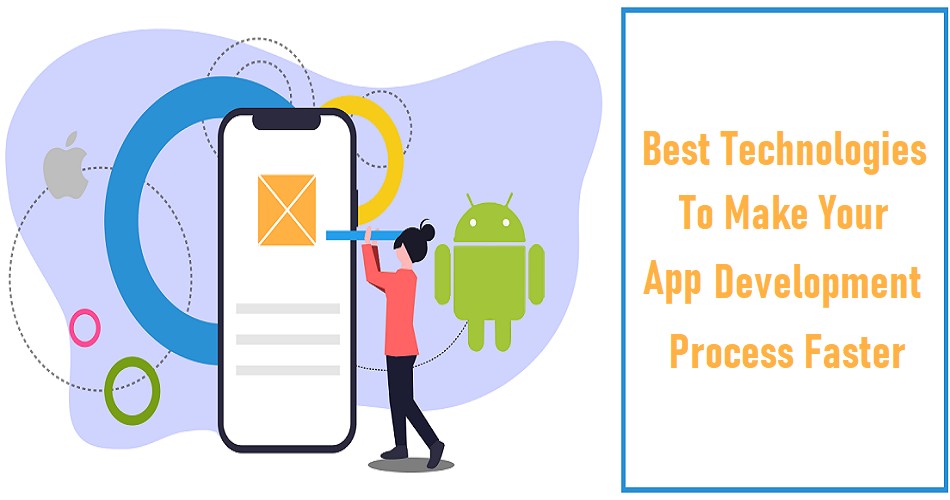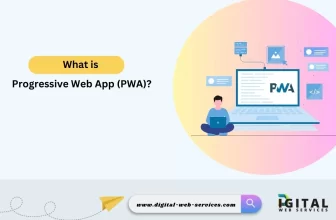
The world of technology is on a constant rise. Out of 6.8 billion users on the earth, 5.1 billion are using mobile phones, and the numbers are increasing every day. Back in the old days of the feature phones, people had to go through great difficulties and hassle to get their day-to-day tasks completed. This is not the same anymore. With people getting more used to the convenience of hand-held devices, more applications and websites are being developed in ways that add to user ease. App development and web development services have become the new big thing of this “smartphone” era.
In recent years, the growth in the mobile app development sector has been happening on a continuous basis, with the number of applications now number in the millions on the internet, fantastic, right? There’s no doubt that applications have made life more comfortable than ever, but there are a lot of concerns that developers face when creating an application, no matter the niche or category they are working for.
The debates over mobile apps may never end, but there is one thing that every developer shall agree upon, that app development and web development services should be developed in a faster manner. Developers need to reduce the development time for apps so that the market time-to-launch can also stand reduced in order to make the app gain high in this very competitive market.
In this article, we will discuss the kinds of technologies that you can use to develop apps in a faster manner, for native applications on both Android and iOS along with Hybrid apps.
So let’s jump right into it.
Types of Applications
Here is a list of some types of applications and their preferable technology stacks which, if used, can speed up your development process.
Native Apps
Native applications are a type of mobile applications that work on just a single platform. For e.g. a native Android app won’t work on iOS. Native apps are faster on their native platforms and much more attuned to the environment for which they are developed. However, you will have to employ different development technologies for each platform that you will create a native app for. In simple words, these are the type of apps which are exclusively built for an operating system, where the development environment and other development tools are provided by the operating systems that you are working for. Some common examples of native apps that we use regularly are Pokémon GO and Angry Birds, which both have separate, native apps for both Android and iOS.
Technology Stack for iOS Native Apps
If you are looking for a technology stack that makes your iOS app development faster, you should consider these tools.
Swift Programming Language:
When it comes to the iOS application development, you could think of two best programming languages, Objective-C and Swift. Objective-C was made back in the 80s;and most of the initial iOS apps are built with Objective-C. However, building apps with Objective-C was much more time-consuming. Unlike Objective-C, Swift can provide inline support for manipulating data, which cuts down the initial size of the app and makes it quicker to integrate and build them. That’s exactly why, most modern iOS developers now use Swift in their application development processes.
Apple Xcode Toolkit
Xcode toolkit is Apple’s all-in-one toolkit that delivers a full-featured development environment for iOS application developers. You can use Xcode to develop iOS applications for both Apple-based mobile phones and desktops. Fortunately, this toolkit comes readily available with a built-in GitHub repository. Debugging tools, building interface, and document integration can all be done in one place.
iOS SDK
The iOS SDK is Apple’s API (Application programming interface) tool. The primary function of the iOS SDK is to serve as a link between the platform and the application. The iOS SDK also comes with programming libraries and other tools for Apple’s touch screen and iOS operating system.
Technology Stack for Android Native Apps
Pay focus towards this development technology stack to boost up the speed of your Android native app development.
Kotlin Programming language
Over the years, Java has been used widely to build Android-based native apps. Java is an old and reputable programming language that consists of vast open source libraries that developers use to help themselves build applications. However, there are notable issues and limitations within Java which delay its API.It takes some serious improvement cycles to eradicate these issues. Therefore, it is recommended to use Kotlin instead of Java while developing an Android native application. Technically, Kotlin is designed with API solutions to improve Java’s deficiencies. You can say that it is an improved Java model with less verbose and cleaner UI to save the precious time of developers.
Android Studio Toolkit
By its name, you can easily judge the fact that the Android Studio toolkit is an official IDE (Android development environment) for developing Android native apps. The toolkit offers a flexible and quick build system with debugging tools and an instant deploy system. Using the Android studio toolkit for Android development can free up lots of extra time, which can be utilized in building high-quality apps.
Android SDK
The Android SDK is one of the most accessible SDKs that you can use for developing Android apps.It is continuously updated, and new features are included with every update. That’s not all. The components can also be downloaded separately as it also supports third-party add-ons.
Pros of Native App Development
- Native apps are highly secure.
- These type of apps serve you with faster performance.
- Based on whatever platform you run them on, they have good user experience as they are specifically designed for it.
Cons of Native App Development
- Since they are designed specifically for a platform, there is a high chance that you won’t get it on multiple operating systems.
- Native apps require more developers to build them.
- Since native require more developers to work on them, they are usually more costly to build than the cross-platform apps
Cross-Platform Apps
Cross-platform is an app development approach where developers use a single code base to build apps for different platforms simultaneously. This approach is usually adopted for developing apps for multiple mobile phones and adaptable for most devices.
Technology Stack for Cross-Platform Apps
Unlike native apps, Cross-platform apps have quite a different framework. Consider thiscross-development development technology stack for faster app development.
React-Native + JavaScript and TypeScript
React-Native is a JavaScript-based framework for developing cross-platform mobile applications. Now, this is where the magic kicks in. Even though the cross-platform applications use a single code base, but with React-Native, they give you an impression that very similar to that of native apps.
The logic here is real simple; React-Native enables you to use the same fundamental UI building models for both Android and iOS. In simple words, if you are using React-Native, your application is technically written and runs with JavaScript, and UI is fully native for both platforms, respectively. Skype and Instagram are perfect examples of such applications.
You can also consider TypeScript language to develop your cross-platform app on. The best part about TypeScript is that it comes readily available with features that come in handy for quick error detection.
Xamarin and C#
Xamarin is another excellent tool for developing cross-platform applications.It uses C# as the primary language for developing cross-platform apps. The most significant advantage here is that by using Xamarin, developers can easily share 90% of the coding across different major platforms, which is because apps developed in the C# are cross-compiled to both native iOS and Android binaries. This saves a massive interval of time, which is wasted in coding for different platforms, respectively.Some great examples of Xamarinbuilt apps are Pinterest and Slack.
Pros of Cross-Platform App Development
- Since cross-platform applications do not require many developers to work, the development cost to build them is usually cheaper than the Native apps.
- They are meant for multiple platforms. There is a high chance that you will get it for all major platforms.
- Cross-platform apps are more comfortable to develop because the codes are reusable, making their development faster than Native apps.
Cons of Cross-Platform App Development
- Cross-platform apps suffer from more performance delays as they have to adapt to different platforms.
- Since they are not meant for specific platforms, they usually consist of universal features which lead to the lack of flexibility.
- Since they are made for multiple platforms, they suffer a lot of integration problems that have to be solved before the application could be launched.
- They use a single code-base, which leads them to have a poorer UX than the Native apps.
When it comes to application development, you have a wide array of choices on development stacks. But these were some of the tools that we believe can make your App development process faster. However, it is crucial to have a solid plan and a keen understanding of the app you plan to develop before choosing any of these stacks.
There are various factors that matter in this type of decision-making, for example, the kind of project you plan to work on. Let’s take native apps as an example. If you plan to build a fully custom app with extraordinary performance, getting a Native app developed is a great choice for this purpose. Keep these critical factors in mind to build an app that rocks.
Digital Web Services (DWS) is a leading IT company specializing in Software Development, Web Application Development, Website Designing, and Digital Marketing. Here are providing all kinds of services and solutions for the digital transformation of any business and website.










